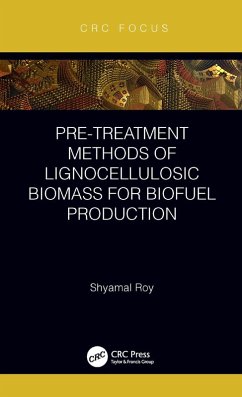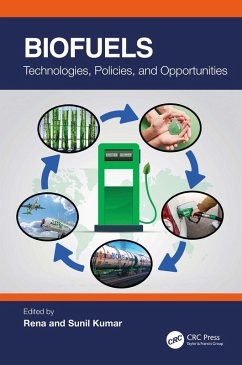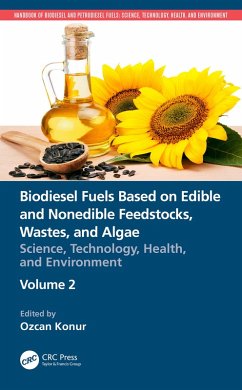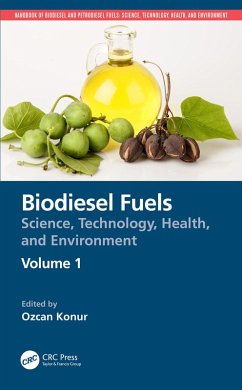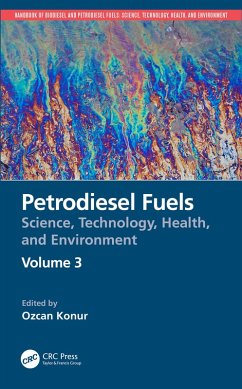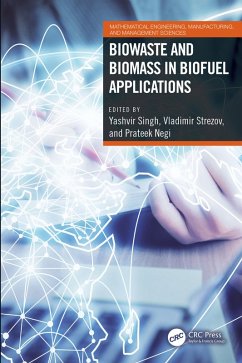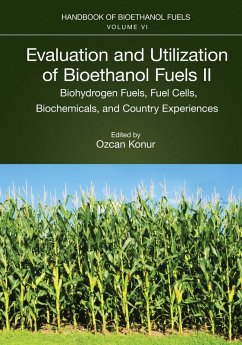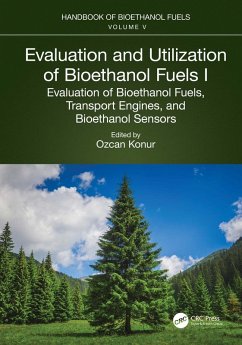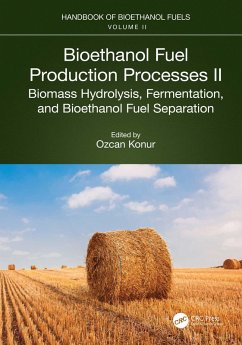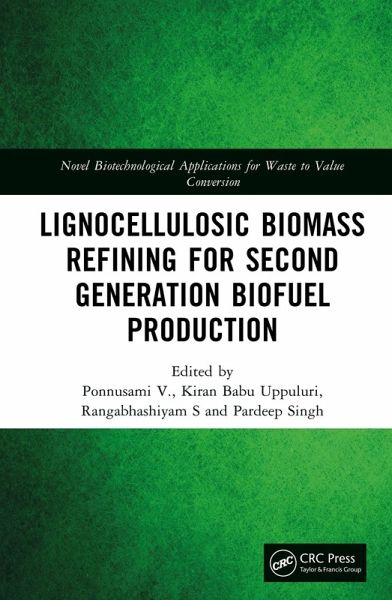
Lignocellulosic Biomass Refining for Second Generation Biofuel Production (eBook, PDF)
Versandkostenfrei!
Sofort per Download lieferbar
46,95 €
inkl. MwSt.
Weitere Ausgaben:

PAYBACK Punkte
23 °P sammeln!
This book compiles research aspects of second-generation (2G) biofuel production derived specifically from lignocellulose biomass using biorefinery methods. It focuses on the valorization of different sources of 2G biofuels and their relative importance. The constituents of lignocelluloses and their potential characteristics different methods of treating lignocellulose, various means of lignocellulose bioconversion, and biofuel production strategies are discussed.Features: Describes technological advancements for bioethanol production from lignocellulosic waste Provides the roadmap for the pro...
This book compiles research aspects of second-generation (2G) biofuel production derived specifically from lignocellulose biomass using biorefinery methods. It focuses on the valorization of different sources of 2G biofuels and their relative importance. The constituents of lignocelluloses and their potential characteristics different methods of treating lignocellulose, various means of lignocellulose bioconversion, and biofuel production strategies are discussed.
Features:
This book is aimed at researchers and professionals in renewable energy, biofuel, bioethanol, lignocellulose conversion, fermentation, and chemical engineering.
Features:
- Describes technological advancements for bioethanol production from lignocellulosic waste
- Provides the roadmap for the production and utilization of 2G biofuels
- Introduces the strategic role of metabolic engineering in the development of 2G biofuels
- Discusses technological advancements, life cycle assessment, and prospects
- Explores the novel potential lignocellulosic biomass for 2G biofuels
This book is aimed at researchers and professionals in renewable energy, biofuel, bioethanol, lignocellulose conversion, fermentation, and chemical engineering.
Dieser Download kann aus rechtlichen Gründen nur mit Rechnungsadresse in A, B, BG, CY, CZ, D, DK, EW, E, FIN, F, GR, HR, H, IRL, I, LT, L, LR, M, NL, PL, P, R, S, SLO, SK ausgeliefert werden.




